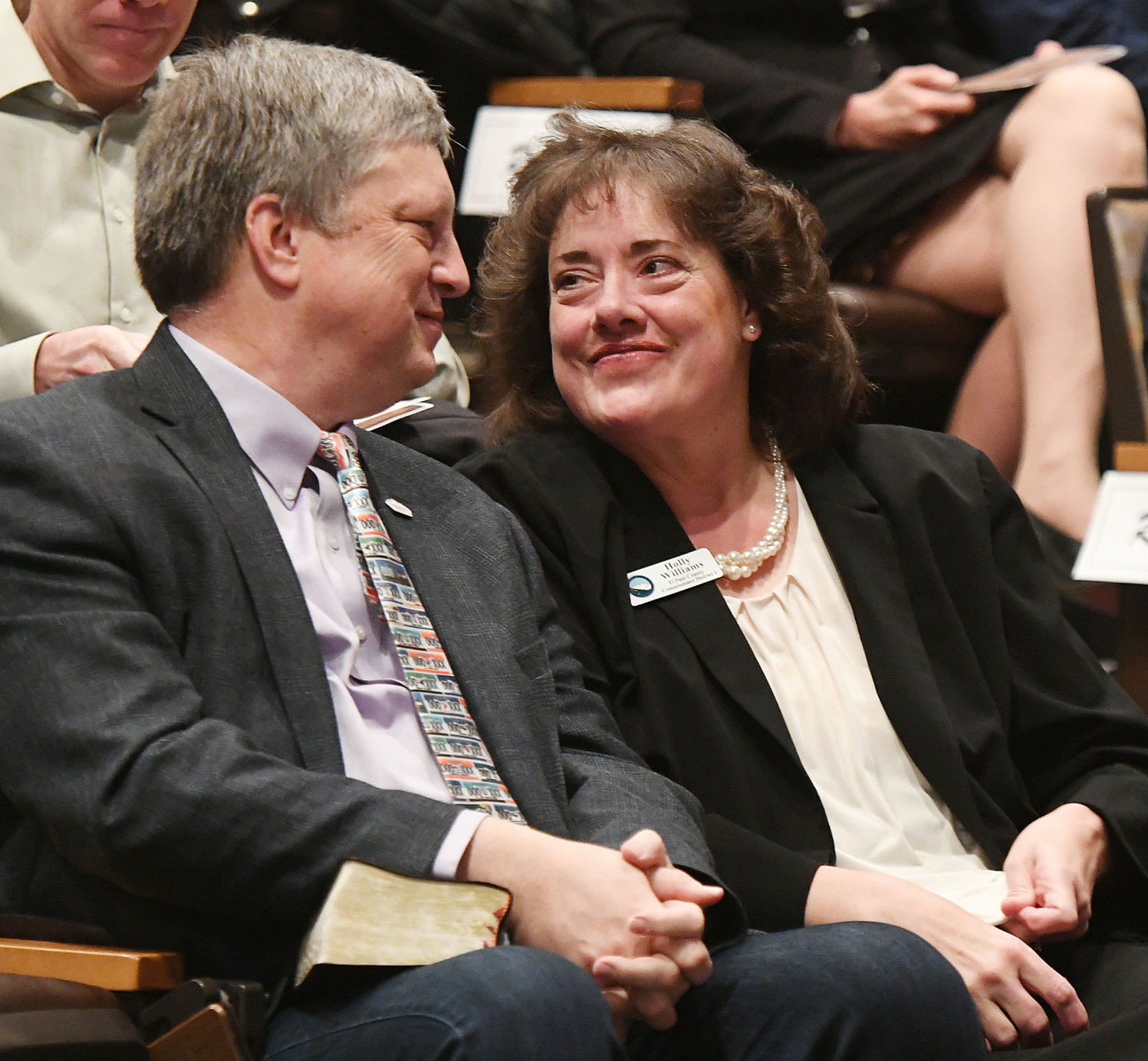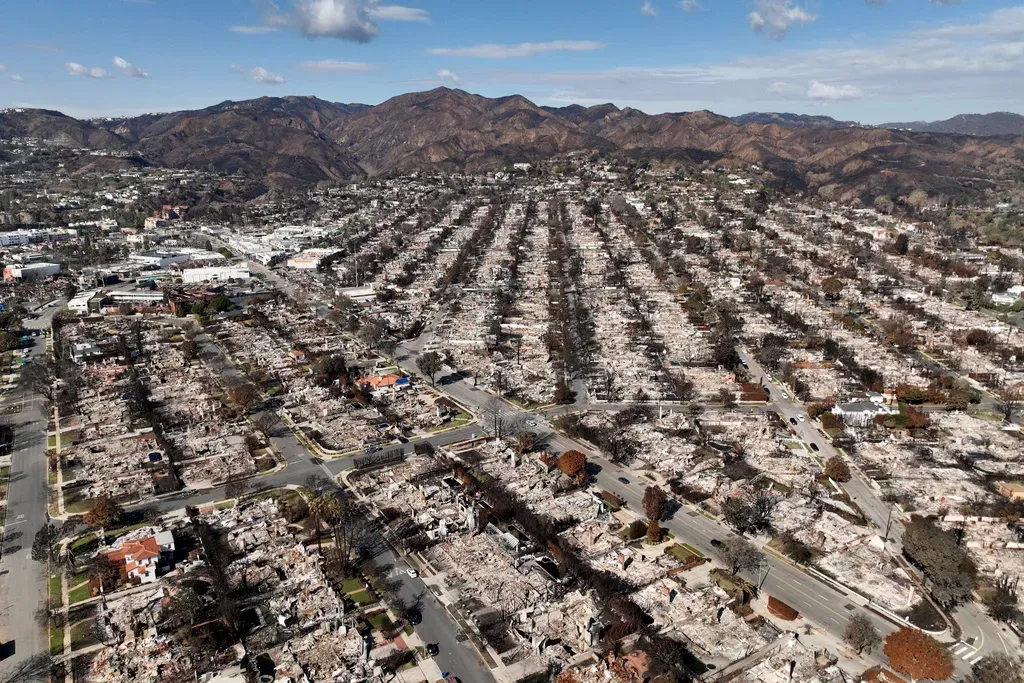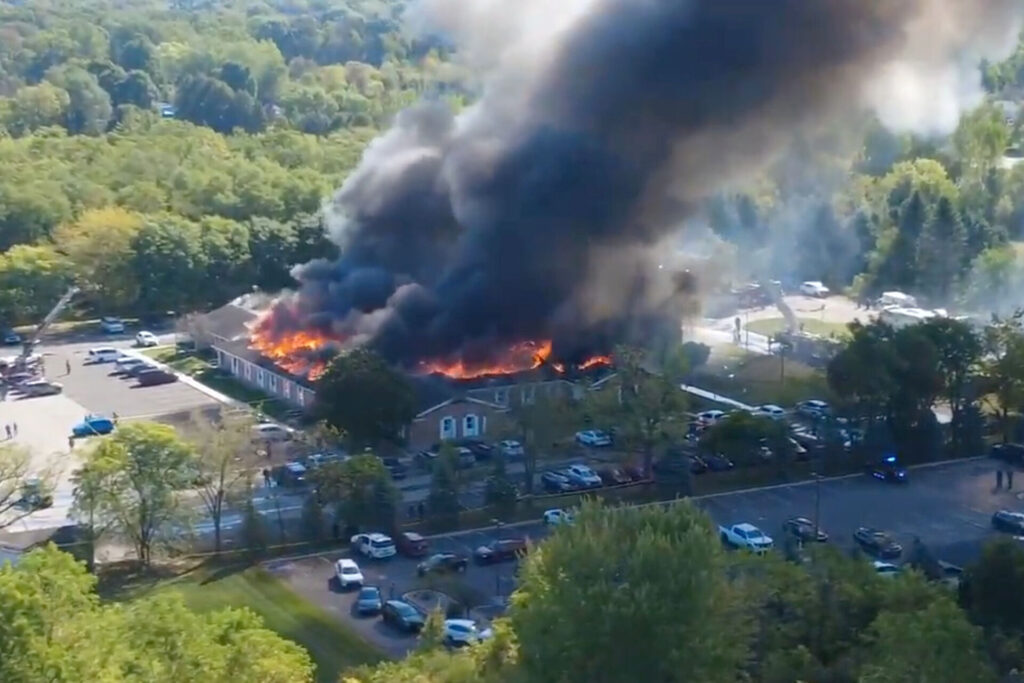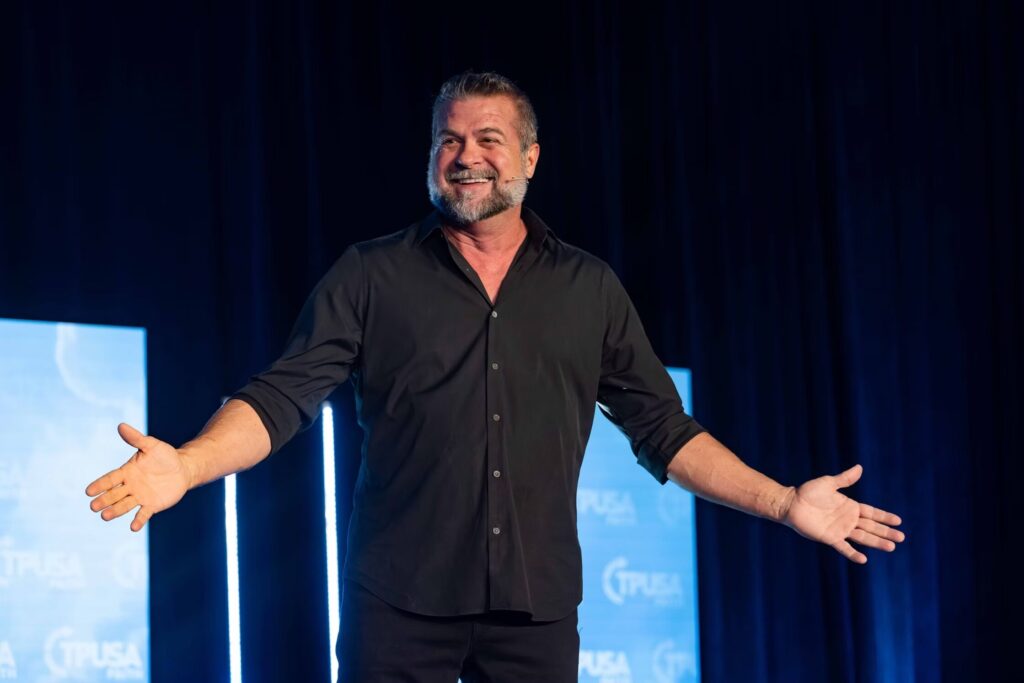Q&A with Wayne Williams | Ex-SOS bounces back from the blue tide
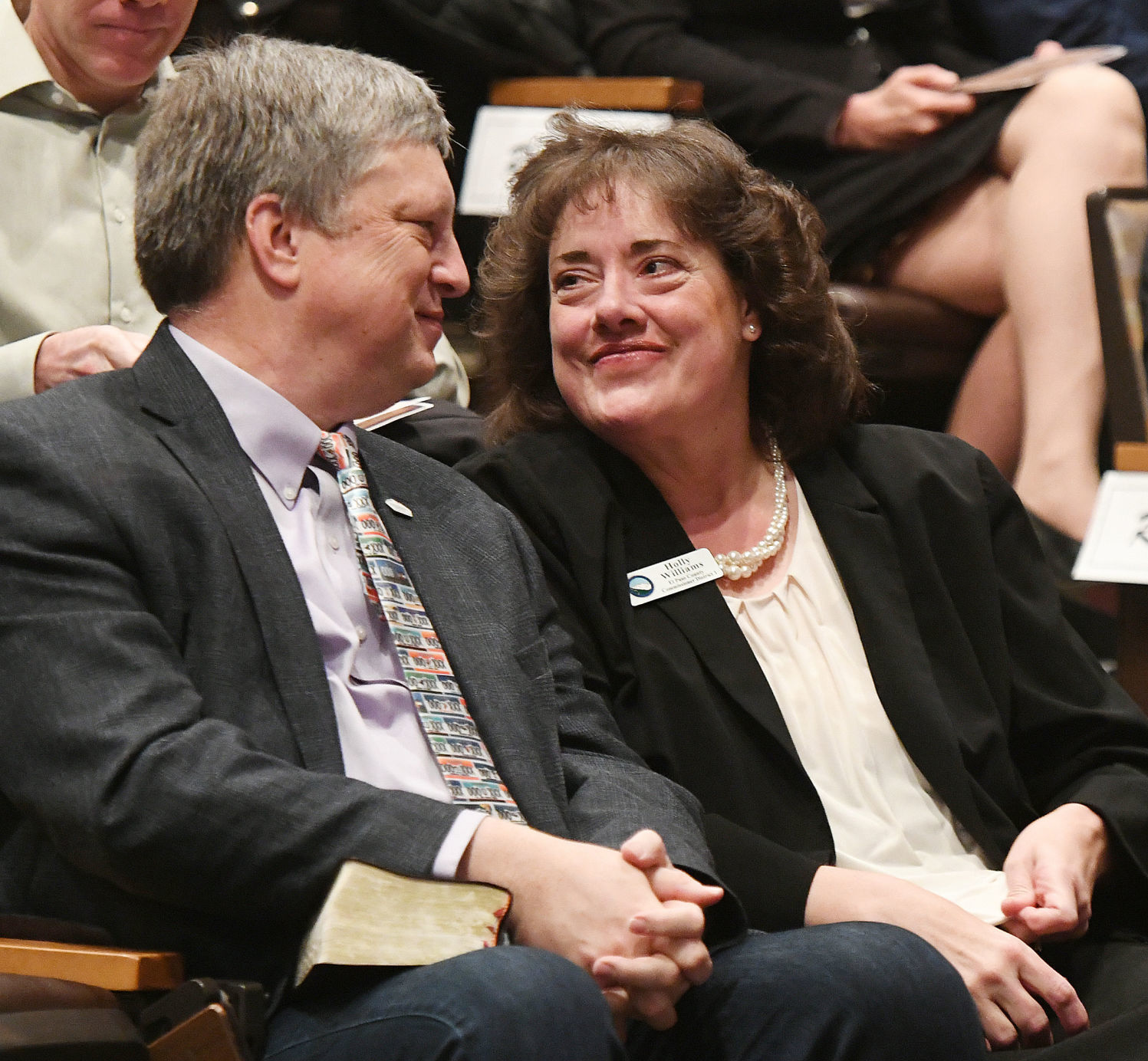
Wayne Williams may be a freshman on the Colorado Springs City Council – he was elected only weeks ago – but he is of course no novice to politics.
A former county clerk and two-term El Paso County commissioner, Williams is known to just about anyone in the Pikes Peak Region who has cast a ballot in the past couple of decades.
He’s no stranger to Coloradans in general, either; they elected him secretary of state in 2014 – then unceremoniously turned him out of office four years later in last November’s Democratic Party stampede. By all indicators, it was nothing he did; the ever-affable Williams had won praise for his outreach and bipartisanship; awards for his policies, and plaudits for his Boy Scout-like bearing in staring down Colorado’s rogue “Hamilton Electors” – remember them? – following the 2016 presidential race. He was just one of many Republicans who never stood a chance last fall in an all-around bad year for the Colorado GOP.
The reversal of fortune left a winsome and seasoned pol – still very much in his prime – with no office to hold. But why run for Springs City Council? It pays next to nothing and demands a whole lot of time and work.
Pundits speculate Williams has his eye on the Colorado Springs mayor’s office in some future election; Williams tells us in this week’s Q&A that his eyes – both of them – are simply focused on the job in front of him. He also covers other topics, including how he recruited the state’s best-known political reporter to run his communications shop at the Secretary of State’s Office. Enjoy.
Colorado Politics: Serving as secretary of state can be a thankless task. The responsibilities are significant – they include safeguarding our elections – yet the secretary toils in relative obscurity. The headlines go to the governor and AG while a lot of voters probably can’t even name the secretary of state in any election cycle.
Before we talk about the November 2018 election that ended your time in that office, tell us why you ran for secretary of state in the first place. What did you want to accomplish in a post whose modest political profile doesn’t exactly pave the way for, say, a U.S. Senate run?
Wayne Williams: In 1997 I served on the El Paso County Canvass Board – the bipartisan board charged with overseeing the election process. At that time our county used punch card ballots. There were set standards as to what counted as a vote – for example, how many detached corners (“hanging chads”) were necessary for it to count as a vote. So three years later, when I saw what happened in Florida during the presidential election, I was shocked at the lack of agreed standards and the efforts to manipulate the counting process.
My time on the Canvass Board was one of the factors that led me to run for El Paso County clerk & recorder in 2010. After my election, I oversaw a transition to paper ballots, which were more efficient and less vulnerable to hacking. Because of my elections expertise, Democrats in the San Luis Valley and Republicans in Teller County hired me to run recall elections in their counties.
The elections experience then caused a number of people across the state to encourage me to run for secretary of state in the 2014 election, when the incumbent [Scott Gessler] made the decision to run for governor.
My goal as a commissioner and clerk had been to get things done, and I saw an opportunity to do that as secretary of state. I truly desired to serve as secretary and did not run for the position so I could do something else. I was the sixth secretary in 10 years and the first this century to run for re-election after completing a four-year term.
Wayne Williams
- At-large member of Colorado Springs City Council, elected April 2.
- Colorado secretary of state, January 2015-January 2019.
- Attorney and owner of Law Offices of Wayne Williams in Colorado Springs, 1998-present.
- El Paso County clerk and recorder, January 2011-January 2015.
- El Paso County commissioner, January 2003-January 2011.
- Holds a bachelor’s degree in political science from Brigham Young University in Provo, Utah; earned a J.D. from the University of Virginia School of Law.
CP: Even when the secretary arguably does everything right – as in your case, no missteps; plenty of attaboys and accolades; cordial relations with the political establishment and news media – a swing of the political pendulum can turn him out of office. The good news is in all likelihood it’s nothing personal. The bad news, perhaps, is that amid political climate change, a secretary of state can’t win for losing. Indeed, your fellow Republican candidates for governor, attorney general and treasurer all lost on the same ballot after garnering comparable amounts of votes.
Any regrets in that regard? Anything in hindsight you would have done differently in hopes of altering that outcome amid the ballyhooed “blue wave”?
Williams: No. I’m proud of the great work we did during my four years, from securing elections to establishing great relations with our county clerks across the state.
CP: Speaking of your good media relations as SOS, you developed a media machine of your own – reinventing your communications office. You hired a prominent and respected member of the state’s news media, Lynn Bartels, to lead the effort and gave her a blog of her own to report on your office’s activities. She blogged about your routine visits to far-flung county clerks, adding warmth, color and quirk to what would otherwise have been mundane press releases. Not radical stuff in the broader world but something of a breakthrough in the stodgy culture of state government. What inspired you to take that tack? Is there a lesson there for how public officeholders in general should deal with the press and public?
Williams: When the communications director position became open, I sat down with my leadership team and told them I wanted a different approach. In the past our office’s communications strategy was reactive, and I wanted to shift it to proactive.
With that in mind I sought out applicants who I thought could help make this shift a reality. We had a number of good people who applied, and I wanted to get the input of Lynn Bartels, the state’s top political reporter, as to who could help bring about this change. During our visit, Lynn asked a couple questions about the job, and I asked if she was interested. She demurred, but a short while later the Denver Post announced buyouts for a reduction in force.
The timing was perfect, and after much pondering, she accepted the offer. I felt like Chad Brock described in his song, “She Said Yes!”
Lynn had been a key part of [the Denver Post political blog] The Spot, and I loved the posts she wrote, so when she mentioned a possible desire to write a blog for the office, I jumped on it.
Most governments have a very formal and slow process in communications. We went the opposite way, and occasionally that meant we might make an error (like Lynn gushing about meeting Bob Woodward on Twitter, but using my official SOS account instead of hers), but I firmly believe we made the right call. It was so great seeing the response from clerks and others across the state who were excited to know that we cared about them.
CP: As secretary of state, you were for a time in the middle of a national news story involving the self-styled “Hamilton electors” in December 2016. The activist Democrats unsuccessfully attempted to derail the Electoral College’s selection of Donald Trump as president by trying to persuade electors to support someone other that Trump or Hillary Clinton; you found yourself in the ironic position of an elected Republican requiring Colorado’s electors to cast their votes for Democrat Clinton, who of course had carried Colorado. Share your thoughts on the state’s national popular vote bill signed into law last month by Gov. Jared Polis.
Williams: My goal as secretary of state was to ensure that Coloradans’ votes were counted and reported accurately. So when rogue electors tried to strip Secretary Clinton’s electoral votes from the people of Colorado, I worked with the Democratic Party, the Governor’s Office, and the judicial system to ensure that Colorado’s votes were accurately counted and submitted to Congress as provided by the Constitution.
Because of my commitment to ensuring Coloradans votes are counted accurately, I’m very concerned about the national popular vote bill. Most states don’t have the safeguards in place that we adopted in Colorado – safeguards like voter-verifiable paper ballots and risk-limiting audits – which means the new law makes Colorado’s electoral votes potentially vulnerable to hacking and other risks.
In addition, some states have adopted laws that suppress the votes of minority party members. For example, California’s top-two system often bars the minority party from having candidates on the November ballot, which suppresses minority party turnout. These suppression efforts mean that in some instances the nation’s popular vote will be skewed.
CP: Your election this month to an at-large seat on the Colorado Springs City Council offered a morale boost if you needed one after last November. You garnered by far the most votes of any council candidate – some 47,000 – a testament no doubt to your longtime political standing in a community you previously served as a county commissioner and county clerk.
We have to ask: Are you – as one pundit speculated for Colorado Public Radio – girding for a mayoral run once Colorado Springs’ just-re-elected Mayor John Suthers steps aside due to term limits in 2023?
Williams: I was gratified and humbled by the strong support I received in the city election, and I’m excited to join the Colorado Springs City Council. While a number of folks have speculated about the future, my goal and mission is to work hard to serve the people of my community well on council.
CP: What are the top issues you expect to address as a new member of the council? And more generally, what does Colorado Springs need most right now in terms of local public policy?
Williams: Like many communities in Colorado, Colorado Springs faces challenges of growth and infrastructure. For us, this includes funding expanded city services like police, fire and parks. On the infrastructure side, it includes addressing stormwater and transportation needs and replacing our outdated community-owned electric generation and transmission facilities.
CP: What life lessons – perhaps applicable to politics – did you learn while serving as a missionary for 18 months in Alaska?
Williams: The full-time work I spent serving Christ and my fellow man helped me prioritize things in my life. For me, that’s faith, family and serving others. When I look back, there are two direct ways my mission impacted my life.
First, establishing my life priorities helps me keep things in perspective. I don’t let disagreements on a particular policy stop me from working with folks on other issues. That’s why we were able to pass 21 of 25 legislative initiatives with strong bipartisan support.
One of the unique things about serving as a missionary was that I served in four areas, with no more than seven months in any one area. That taught me the importance of getting things done quickly with a sense of purpose. That’s helped me approach public service with an eye toward actually getting things done.
So when I became a county commissioner, I immediately began the process that led to the creation of the Pikes Peak RTA. When I became secretary, we launched the process of establishing new voting system standards immediately.
